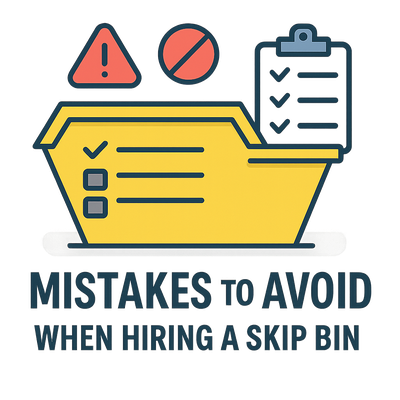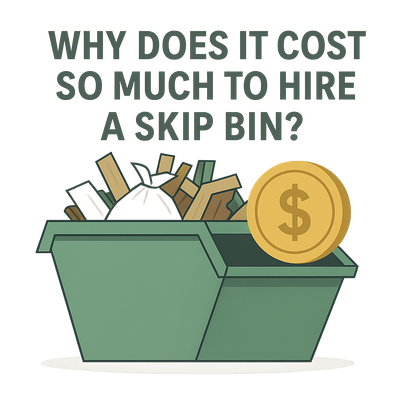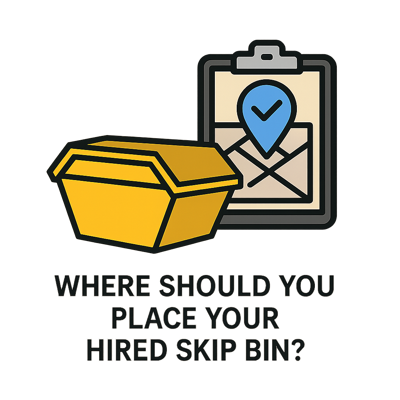
By Brimbank Bin Hire - October 2025
Hiring a skip bin seems straightforward: pick a size, book delivery, fill it up, and wait for the pickup. But in reality many homeowners and businesses make mistakes that raise costs or cause delays. Knowing what to avoid helps you get the right skip bin for your project at the right price.
Choosing The Wrong Size
One of the most common errors is booking a skip bin that is either too small or too large. A bin that is too small will overflow, requiring an extra hire or additional pickup fee. A bin that is too large may cost more than needed, leaving you paying for unused capacity. Understanding your project type, garden waste, home renovation, demolition or business clean-up, will guide correct sizing.
Failing To Clarify What’s Included In The Hire
Many customers assume the price covers everything, but hidden costs may apply: transport to remote locations, extra days beyond the hire term, weight limit exceedances, or placement on public land. Always ask what is included, delivery, collection, a set number of days, weight allowance and public land permit if needed. Transparent pricing prevents surprises.
Ignoring Waste Type Restrictions
Not all waste is treated the same. Household clean-out rubbish differs from mixed loads containing concrete, soil, bricks or hazardous items. Some skips do not permit certain materials or may charge extra for them. If your load includes heavy or restricted items, mention that at booking to avoid being hit with extra fees or rejected on collection.
“Avoiding skip hire mistakes means better value and fewer surprises for your clean-up or project.”
Placing The Skip On A Surface That Isn’t Suitable
A skip bin placed on soft lawn, gravel or uneven ground can shift or the truck may damage the surface during delivery or collection. On private property, this may cause damage and liability issues. On public land, incorrect placement may breach council regulations. A proper assessment of surface and ground condition avoids unplanned costs.
Not Checking Access And Clearance
Access issues often delay delivery or pickup. If the skip is booked but the truck cannot reach the site, re-booking fees may apply. Narrow alleys, hidden driveways or low hanging trees can all block access. Confirm the truck’s path, clearance width and any time restrictions for delivery in your area.
Assuming Permit Requirements Are Always The Same
If you need to place a skip bin on a road verge, nature strip or footpath you may require a council permit. The permit may come with additional costs and signage requirements. Without the correct permit you risk fines or relocation of the bin. Even on private land check if local council rules impose restrictions.
Overlooking The Duration Of Hire
Many bookings default to one week, but delays in your project may require extra days. If the skip remains onsite beyond the agreed period the hire company may add extra charges. Sizing and scheduling the project time frame correctly avoids extension fees and ensures the bin is collected when you finish.
Skipping Recycling And Transparent Reporting
Some providers handle rubbish simply by sending it to landfill. Others invest in sorting and recycling to reduce waste and lower cost. Ask about recycling rates and whether the provider offers transparent reporting of what happens to your waste. This helps you make sustainable choices and often avoids hidden landfill levies.
“We make skip bin hire easy, clear and cost-effective. You get the bin you need without the stress of hidden fees or delays.”
We at Brimbank Bin Hire support both residential and business clients through every step of skip bin hire. We discuss your project, recommend the right size, explain what is covered in the hire price and help you navigate access, surface, permit and waste type considerations. We aim to provide transparent pricing, professional service and responsible waste handling so you can focus on your project, not the rubbish.
 Brimbank Bin Hire
Brimbank Bin Hire

